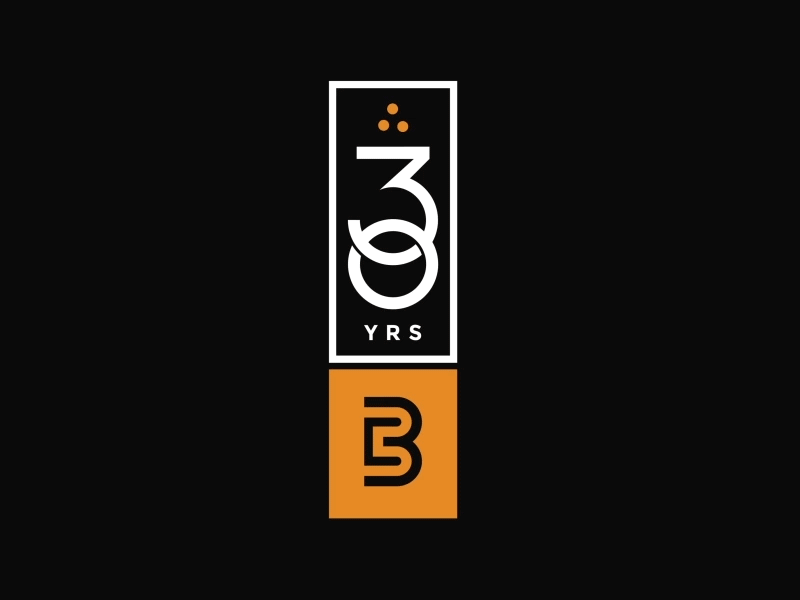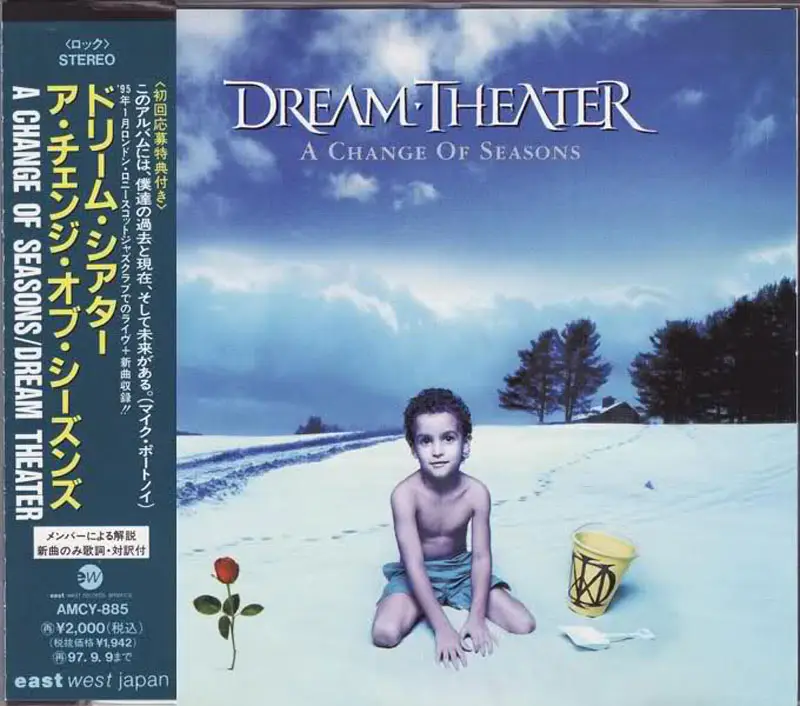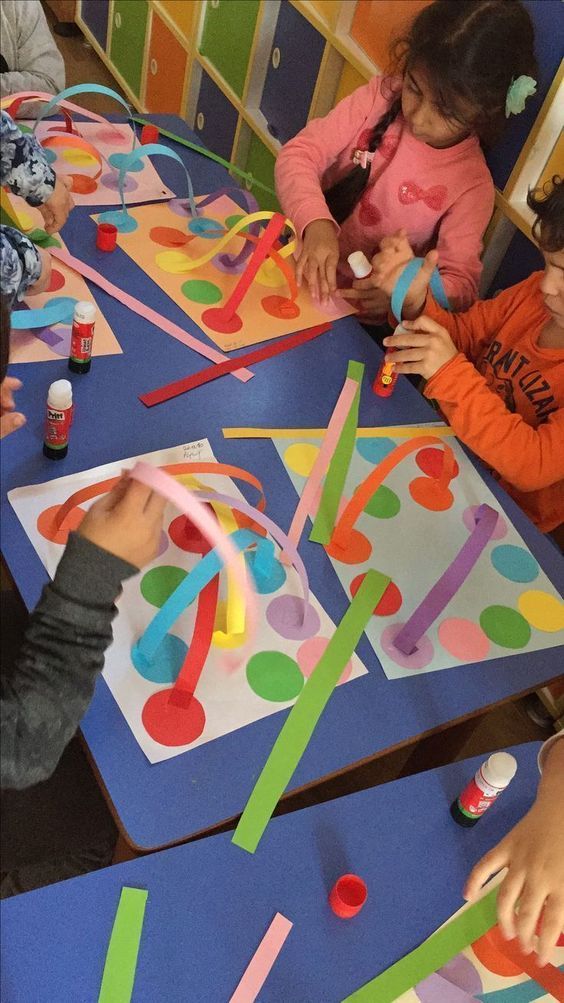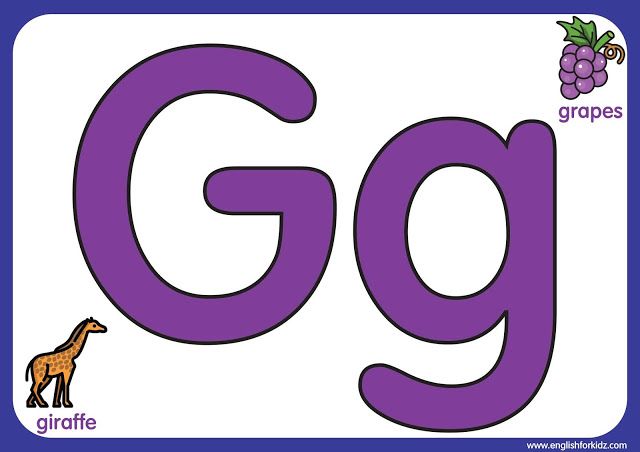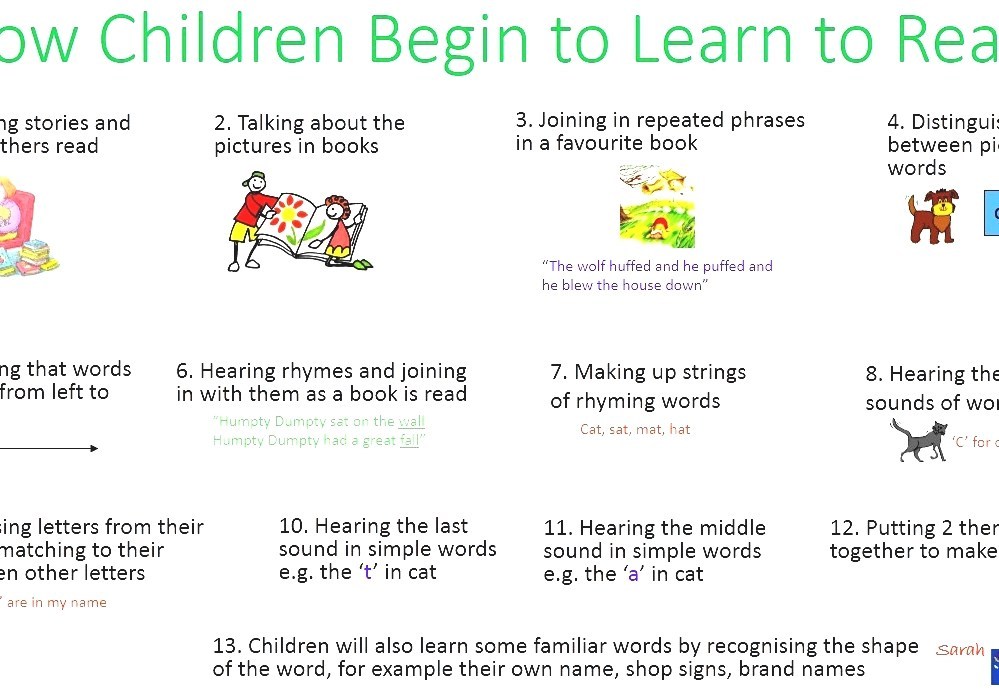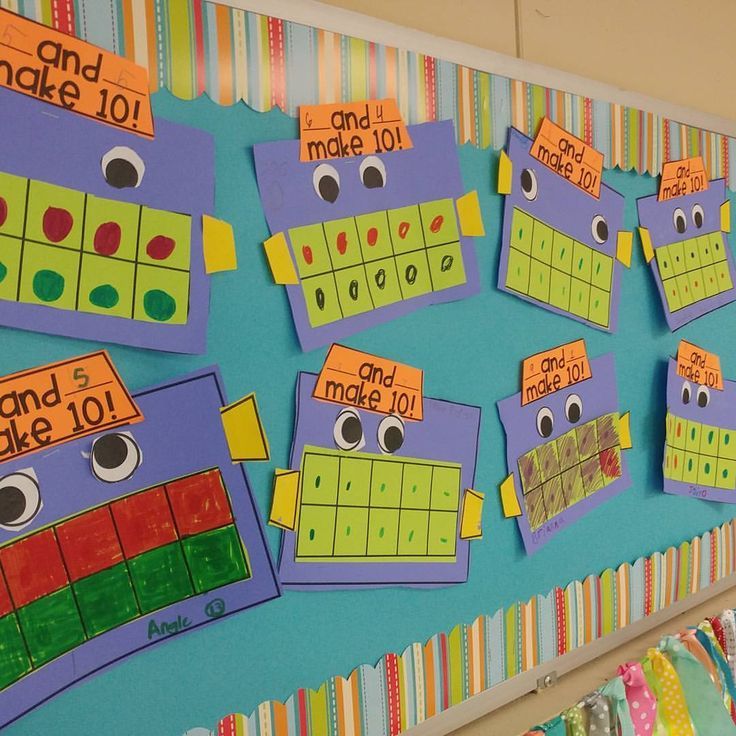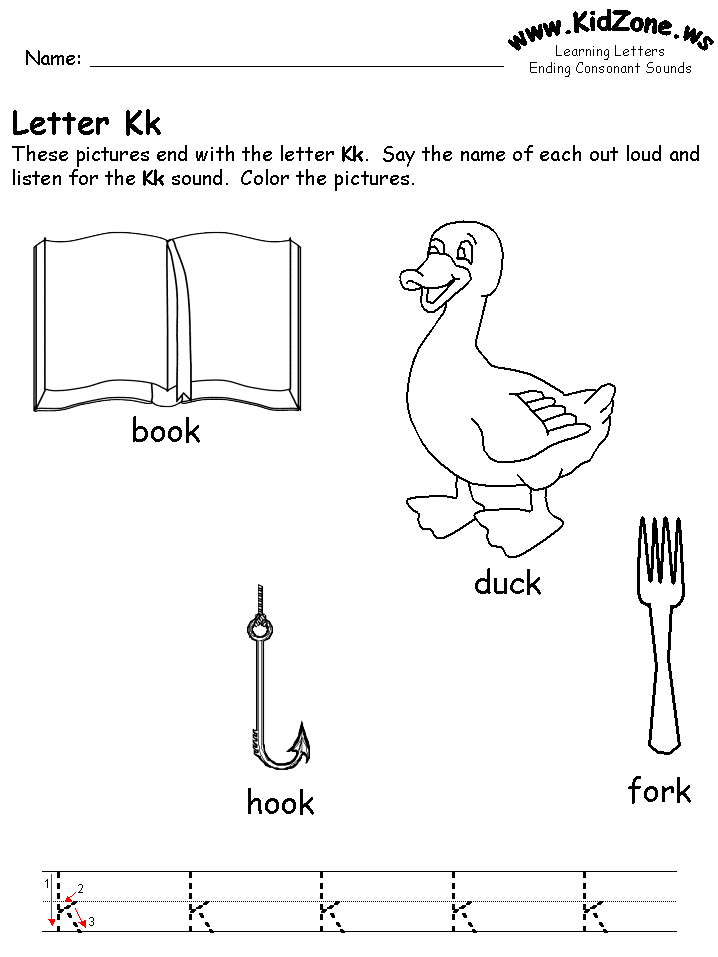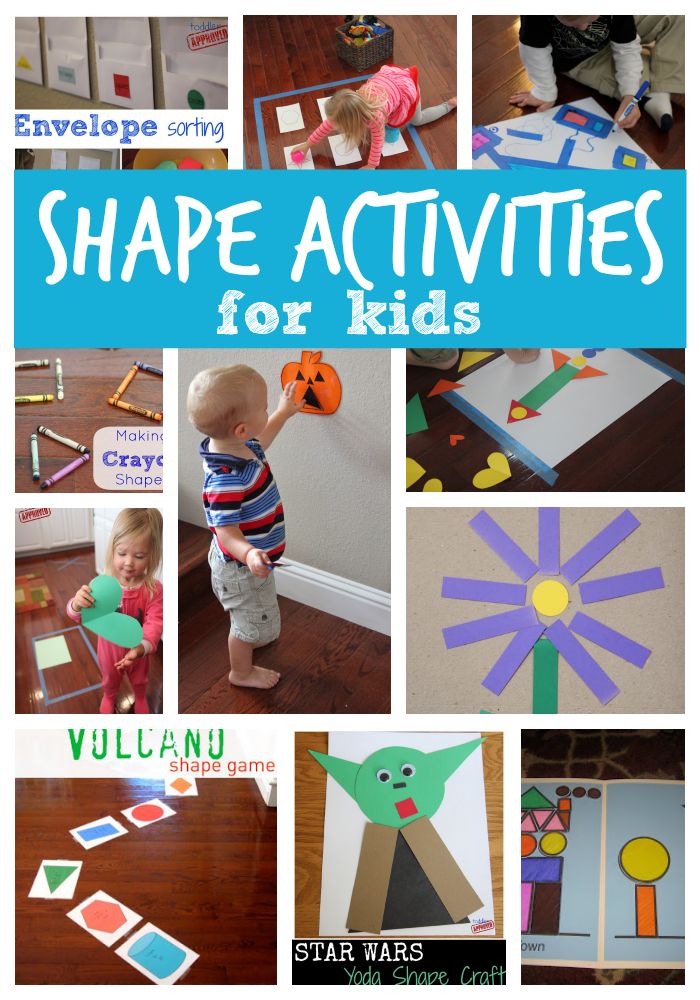Compound words ball
Compound Words with a Bouncing Ball
This ‘Compound words with a bouncing ball is a simple but very effective phonics game. All you need is a ball, and some flashcards. Here we are using this game to teach compound words, but it can be adapted to teach lots of different phonics content.
Compound words are words that are made up of two different words. For example, ‘bed’ and ‘room’ are two separate words, with different meanings. But when you put them together – ‘bedroom’ – they take on a new meaning. Learning about compound words helps children to read longer two syllable words with greater ease.
Compound Words with a Bouncing Ball Activity
What you will need:
- Flashcards with the parts of compound words written on them (you can scroll to the bottom of this post for a list of words to use).
- A ball. One that bounces slightly is best, like a foam ball or a rubber ball.
How to play:
- Read through all of the flash cards first.
It is important that your child reads them first, because if they cannot yet read the word, then this activity is not for them. So, read the words and make sure that your child understands the meaning of the words.
- When you are ready to play this compound words with a bouncing ball activity, spread the cards out across the floor, with the words facing upwards.
- Call out a compound word, such as ‘uphill’.
- You child repeats the whole word, then bounces the ball on the first part of the word (saying that word) and back to themselves, and then on the second part (again, saying that word).
- Say the word one more time, clapping or jumping each time you say each word. This will reinforce the concept of the two syllables in the compound word.
- Repeat until you have done all the words.
- You might want to swap places then, and your child reads the list of words, while you bounce the ball. This will give them practice in reading the word as a whole.
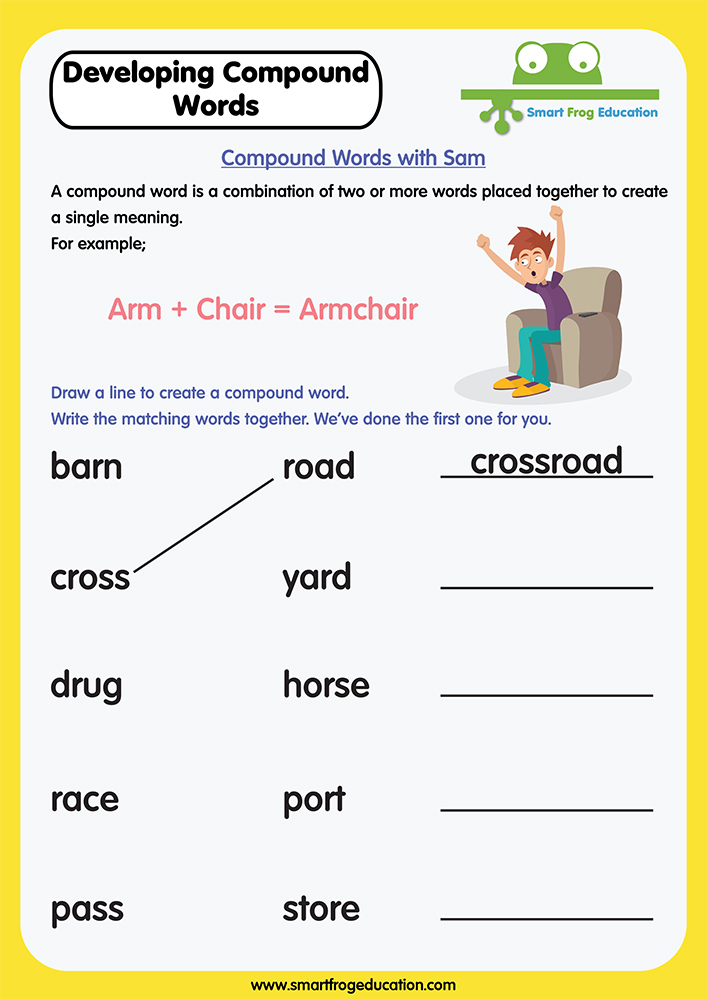
Sometimes, it can be difficult to know if an activity will be helpful for your child or student. For this activity, the questions below might help:
- Are they reading three and four letter, one syllable words confidently? For example, ‘hot’, ‘map’, ‘run’.
- Can they read blends at the beginning and at the end of words? For example ‘frog’, ‘fast’.
- Are they reading some digraphs? For example, do they know that ‘ch’ makes the sound at the beginning of ‘choose’.
- Do they understand the concept of syllables? They might not know the word ‘syllable’ but if they can clap out the syllables in their name, for example, then they probably understand that words can be broken down into ‘chunks’.
If the answer is ‘yes’ to these questions, then this compound words with a bouncing ball activity will be a great way to teach or reinforce compound words
To note
Not every game or activity goes to plan! Here are some things to watch out for:
- As with any game involving balls that bounce, things can get out of hand, especially if the child does not catch the ball after bouncing it! A few ground rules before you start can often help to set out behavioral expectations.
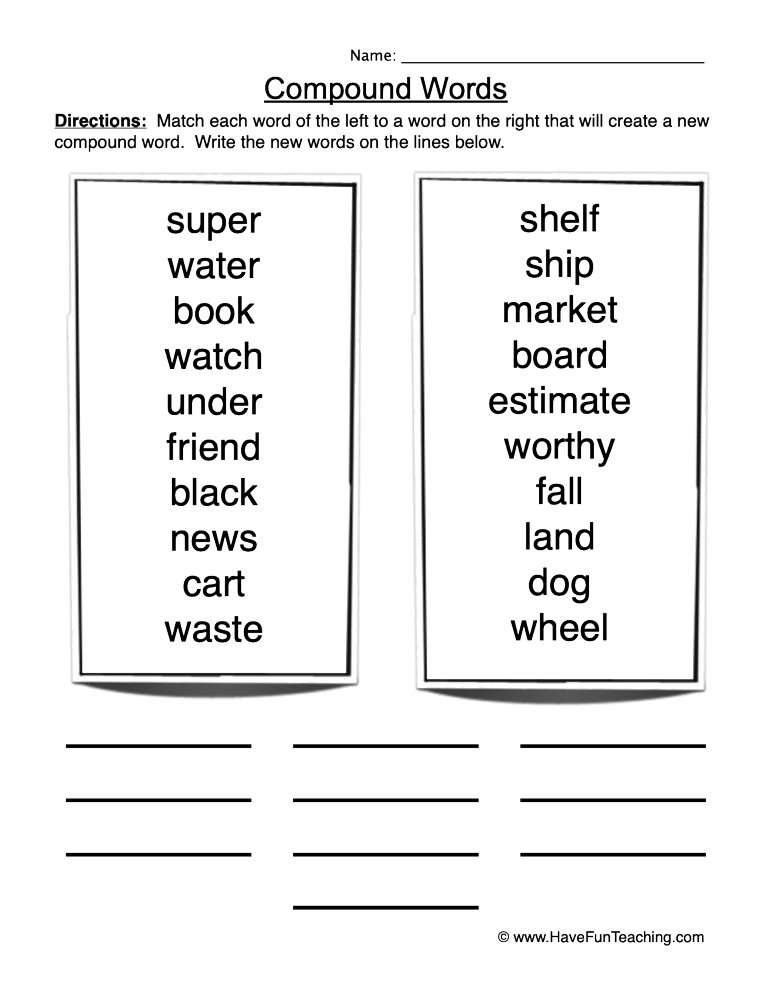 You could also put the ball away and jump to the words instead.
You could also put the ball away and jump to the words instead. - You can make nonsense words. This is not too much of a problem, as playing around with sounds and words is often a beneficial activity. You can also draw attention to the fact that some of the words you make mean something, and others don’t.
How to adapt
- Choose any two words to bounce to, and see what words you can make up
- As mentioned above, you don’t have to use a ball. You could jump or run between the words.
- Take it outside. This is a great one for taking outside. You could write the words in chalk and throw the ball at them, or you could replace the ball for water bombs or wet paper towels!
Here’s how it looked when I did it in ‘real life’!
Compound Word ListsDownload
Hyphen Rules in Compound Words
What to KnowThe forms of compounds (two words used together) in English are not fixed. Some terms have moved from being open compounds (base ball) to hyphenated (base-ball) to closed (baseball), a pattern that reflects familiarity and frequency of usage.
Hyphens are often used when a compound modifies a noun (“sun-bleached curtains,” “fire-roasted tomatoes”) but not when -ly adverbs are used (“lightly salted peanuts”).
Among the correspondence we receive at Merriam-Webster, a significant amount of it comes from people asking how to style a particular compound word. Should it be two words? One word? Should a hyphen be inserted between the two components?
The definitive answer is: it's complicated.
Open, Hyphenated, and Closed Compounds
For much of the dictionary’s history, a compound word was shown in only one form—closed, hyphenated, or open—even if there were examples of two or, sometimes, all three forms in use. This practice was necessitated by the limitations of page space: it simply wasn’t practical to show all of the possible permutations of a compound word at the expense of other information in a print dictionary entry. You saw only one styling—the one that occurred most frequently within a sample of evidence. If that evidence changed, then the headword was revised.
If that evidence changed, then the headword was revised.
Even in the digital age, this is true for many entries. The term tongue twister, for example, is shown as an open (two-word) compound, even though there is plenty of evidence for tongue-twister in the wild. The same is true for terms like vice president and tape measure. Absence of a particular compound style in the dictionary doesn't mean it's not in use; it only means it's much less common.
Historically, a lot of compounds follow the pattern of entering English as open compounds, then gradually take on hyphenation and eventually a closed form as they become more familiar. There was a time, after all, when baseball was spelled as base ball. As the sport took hold in the American consciousness, it gradually began to be spelled with a hyphen (base-ball), but now any form other than the solid compound baseball looks like an affectation.
Similarly, lifestyle, boilerplate, doorbell, screwdriver, tailwind, rowboat, and postcard all had eras when they were encountered more commonly as open or hyphenated compounds.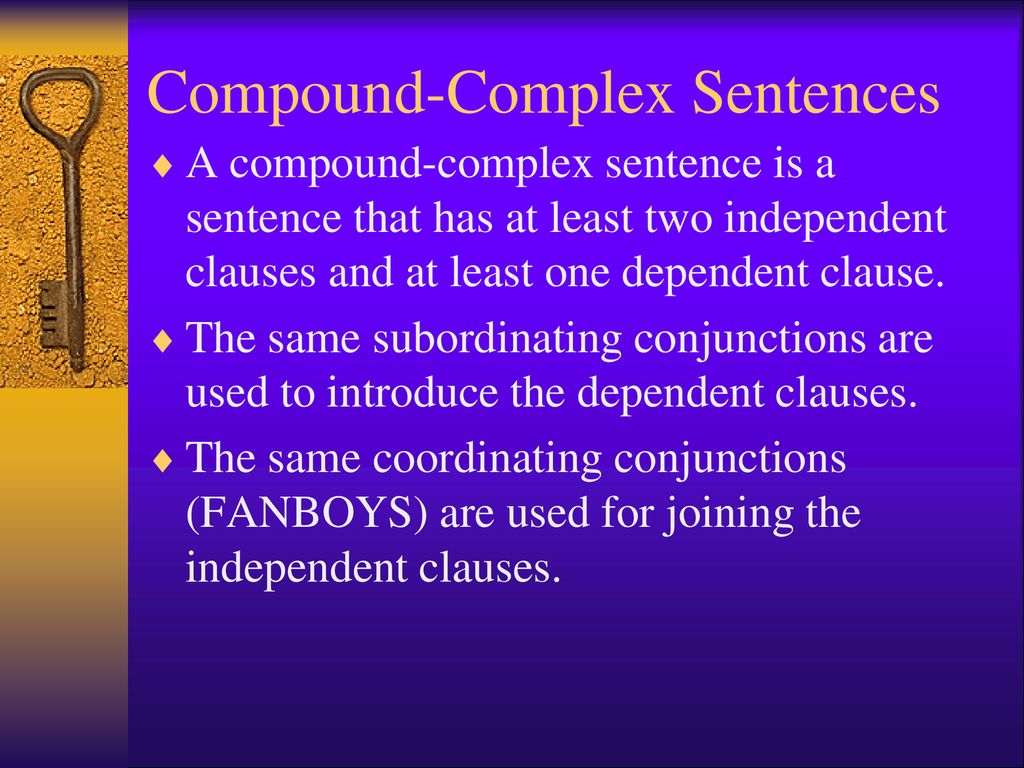 Now we almost invariably see them closed, and that’s the only styling they are shown with in the dictionary.
Now we almost invariably see them closed, and that’s the only styling they are shown with in the dictionary.
Even words that might seem comparable can show disparate forms. You are likely, for example, to spell shoelace, postcard, rattlesnake, and doorknob as closed compounds, but you’re also likely to find shoe tree, post office, garter snake, and door handle as open. You’re more apt to find a hyphen in double-header or double-decker than in double play. And front yard and front seat tend to appear as two words, but backyard and backseat as one.
What all of this means is that there is a great deal of fluidity when it comes to the styling of compounds and whether a particular compound is open, hyphenated, or closed. So much fluidity, in fact, that the dictionary cannot always provide a cut-and-dried answer, as much as it tries.
But do not despair: there are a smattering of guidelines that are for the most part consistent and that can help you.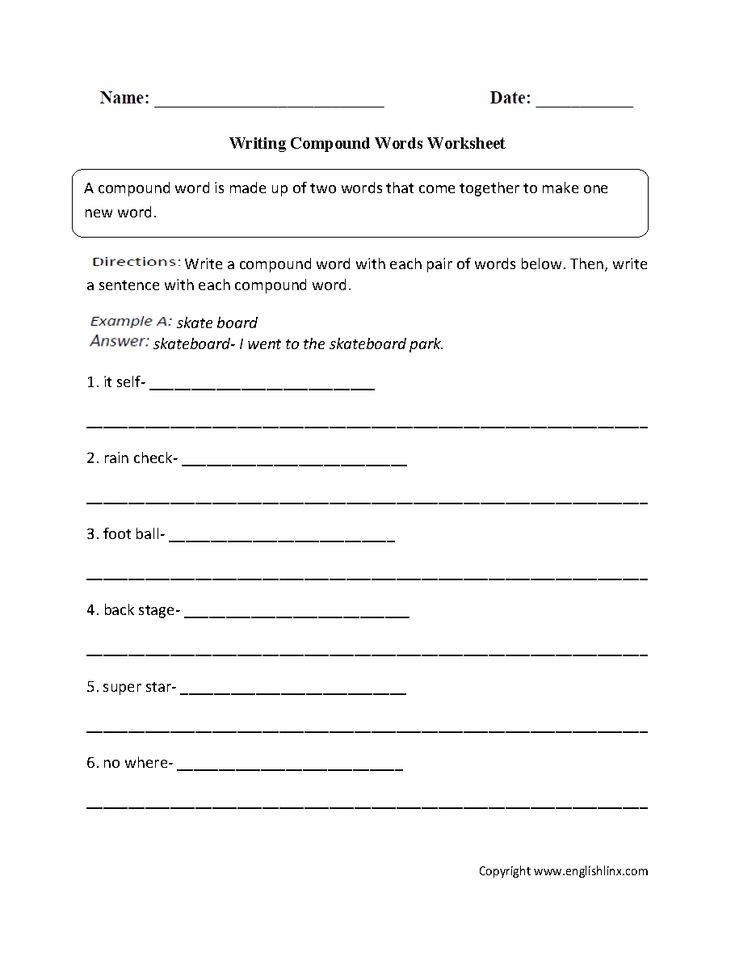
(Loose) Guidelines
For example, when a compound that is usually left open is used to modify another noun, that compound will usually take a hyphen. So you can speak of a person who loves science fiction going to a science-fiction convention. Same with a video-game collector, a food-truck business, a pet-store employee, or even adjectives made from phrases, like made-for-TV movie or over-the-counter medication.
(Even in these instances, the hyphen is sometimes dropped for very common terms that aren’t likely to be misunderstood, like real estate agent or health care legislation).
Hyphens also work well with compound adjectives that end in a participle: a funny-looking badger, a sun-bleached roof, fire-roasted tomatoes, a money-grubbing thief.
Hyphens tend not be used for adjectives that are modified by adverbs, even when they come before nouns: lightly salted peanuts, distantly related cousins, a poorly written sentence.
For most other instances, the best strategy may be to trust what you think looks right. Some writers are more comfortable lumping together compounds than others. Some think a hyphen is visually messy. Note, though, that whether or not you choose to style a compound as one word or two might convey something about your familiarity with the word (or lack thereof). One dictionary that shall not be named was a bit notorious for showing the headword Web site long after most of the civilized world was using website. They wised up, eventually.
Compound nouns in English ‹ engblog.ru
Paradoxically, but the phobia of long words is called in English a very long term hippotomonstrosesquipedaliophobia . This vast word is a clear example of what is called a compound noun ( a compound noun ). It was formed by combining several words: hippopotamine means something incredibly large, the Greek word monstr is used to describe something terrible, sesquippedali is half the length, and phobia is, as you know, an obsessive fear of something.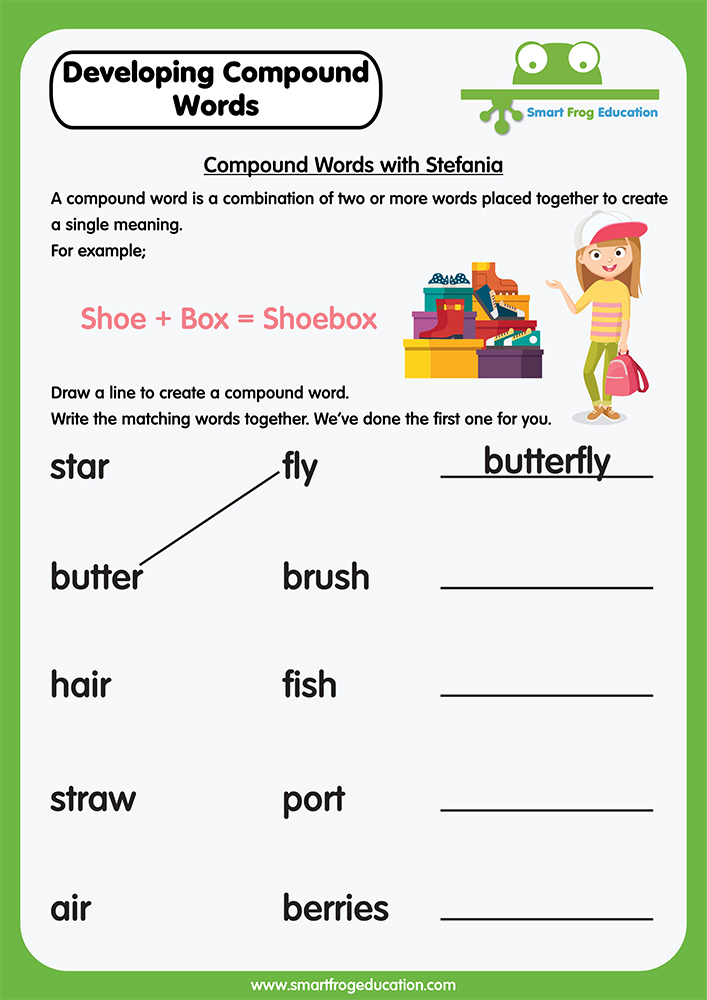
Fortunately, not all compound nouns in English are so intimidating. Most of them include two short words, sometimes connected by a preposition. So while reading this article, you are unlikely to be threatened with hippopotamusmonstrosesquipedaliophobia.
What are compound nouns
From the very name it is clear that compound nouns are words that include two or more components. In many modern languages, including English, such words are quite common, and their number is constantly growing. This is due to the dynamic development of our world and the constant emergence of new terms, professions, services, etc. A closer look at some of the most commonly used English compound nouns shows that one of the components describes or refines the second, giving a more complete picture of the subject.
- An air + a plane = an airplane
- A police (police) + a man (person) = a policeman (police).
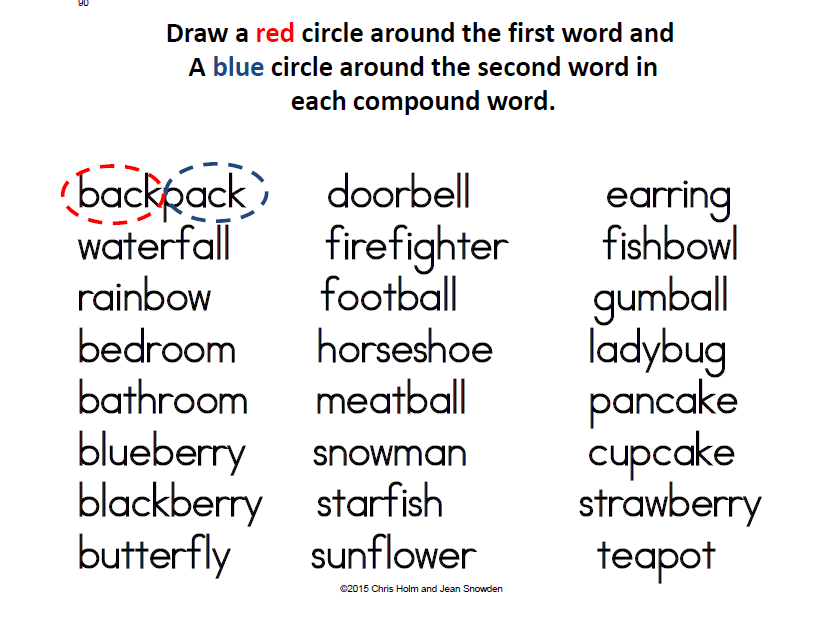
- A boy (boy) + a friend (friend) = a boyfriend (young man, lover).
Ways of forming compound nouns in English
The table shows the main combinations of parts of speech from which compound nouns can be formed. Please note that some words in English can be several parts of speech at the same time. For example, word work is the noun “work”, and to work is already the verb “work”. And words like in , off , under , by and over can be both prepositions and adverbs.
| Method of formation | Examples | |
|---|---|---|
| Noun + Noun | Football A sunflower A vineyard - vineyard A haircut - haircut | A foot (foot) + a ball (ball) The sun (sun) + a flower (flower) A vine (vine) + a yard 0 (yard) 0 (yard) Hair (hair) + cut (shape, shape) |
| Noun + preposition / prepositional phrase | A day off A mother-in-law - mother-in-law An editor-in-chief - chief editor | A day (day) + OFF A Mother (Mother) + in + Law (Law) AN EDITOR (editor) + In + Chief (Chef) |
| Noun + verb | A doorstop door closer A dragonfly dragonfly A waterfall waterfall | A door + to stop A dragon + to fly (fly) Water (water) + to fall (7) |
| Adjective + noun | Full moon A nobleman Quicksand quicksand A black eye black eye | Full (full) + the moon (moon) Noble (noble) + a man (human) Quick (quick) + sand (sand) Black (9003 an eye) + (black eye) ) |
| Preposition/adverb + noun | The inside - inside, side Downtime - simple, forced inactivity An undertone - subtext, hidden meaning An underclass - the lower stratum of society | In (in, inside) + side (part, side) Down below) + a tone (hue) Under (under, less, below) + class (class of society) |
| Preposition/adverb + verb | An outlet - stock market Input - contribution An upswing - lift; improvement | Out + to let In + to put Up + to swing , change abruptly) |
| Verb + noun | A breakwater breakwater A driveway driveway A cookbook cookbook A telltale - talker, gossip | To break + water To drive + a way To cook + a book tell + a tale |
Forming the plural of compound nouns
The plural of compound nouns is formed by adding the letter s to the main design word:
- A green house (greenhouse) – green houses (greenhouses).
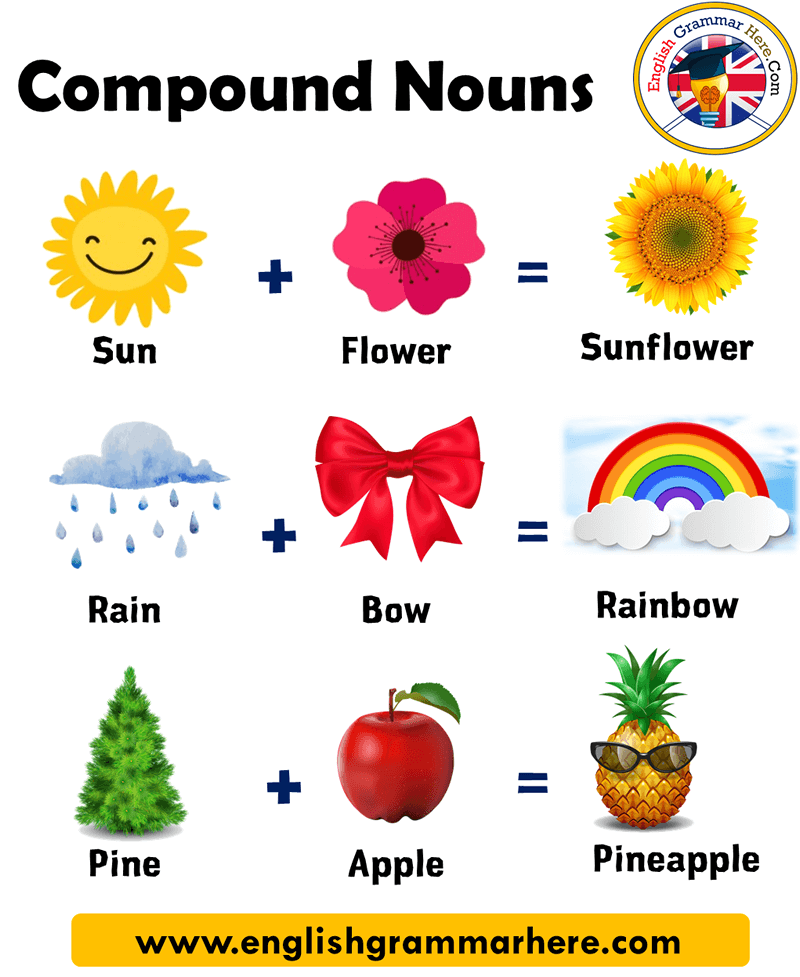
- A car park (parking) - car parks (parking).
- A mother -in-law mothers -in-law
How to determine the main word in a compound noun? It is usually placed second. However, there are also compound nouns in which both components are equal. In such cases, the letter s is added to the second word:
- A table spoon
- An ash tray (ashtray) - ash trays (ashtrays).
- An also- ran (outsider) – also- rans (outsiders).
- A go- between (intermediary) – go- betweens (intermediaries).
- A grown- up / grown up (adult) – grown- ups (adult).
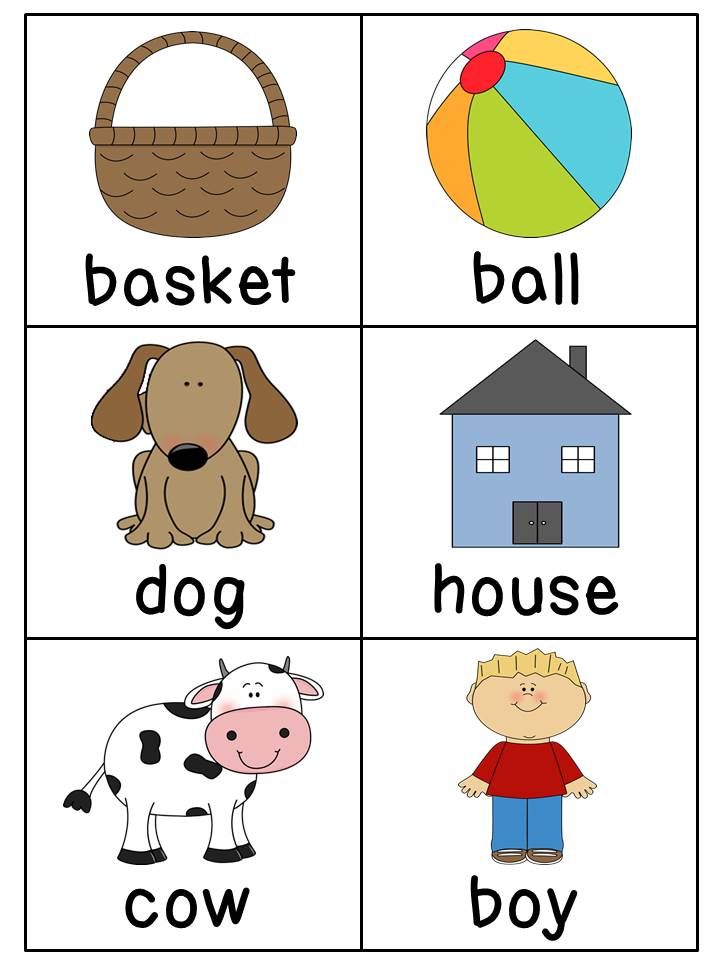
If one of the words that make up the compound noun has a special form in the plural, both words change: a m a nservant (servant) - m e nservant s (servant).
How to write compound nouns in English
Compound nouns in English can be written in three ways: together, with a hyphen, and separately.
- A firefly
- X-ray X-rays.
- A sergeant major - sergeant major, foreman.
There is no clear rule regarding the spelling of compound nouns in English. Therefore, the surest way to check the spelling of a word is to look it up in a dictionary. Interestingly, the use of the hyphen in modern English is reduced to a minimum. And those words that were originally written with a hyphen, over time, begin to be written together (for example, email and online ).
How to pronounce compound nouns in English
Usually, each of the words that make up a compound noun retains its stress, and when pronounced, the first component of the compound word is emphasized.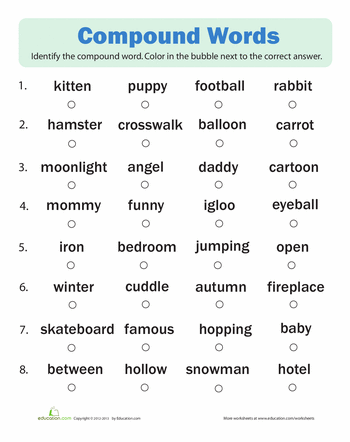
- A páper knife / páperknife - paper knife.
- A reading test - reading test.
- A sínging lesson - a singing lesson.
However, this is a general recommendation and may not apply to all compound nouns. Each case is different, and it is best to check the stress in a dictionary.
Clear rules can be followed only in two cases:
- If a compound noun contains a proper name or the name of something, the stress is most often placed on the first syllable of the second word:
- Mount Éverest - Mount Everest.
- Prime Minister - prime minister.
- New York - New York.
- If a compound noun is formed from a phrasal verb, the stress falls on the first syllable of the first word:
- A gétaway escape.
- A comeback - return.
- A bréakdown - breakdown, failure.
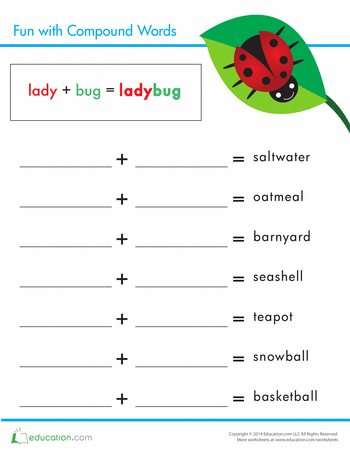
Learning how to pronounce compound nouns in English is easy. You already know the theory of how this is done, and a practical lesson will be given to you by a native speaker Emma in this video:
The topic of compound nouns in English is not difficult. In order to use them correctly, it is enough to remember a few simple basic rules. And to check how you learned the topic, take our test.
Test
Compound nouns in English
Match the words from the left column with the words from the right to get compound nouns
| After A swimming Break A bus A head A black | ache stop noon pool board mate cream fast |
The test is not available for mobile devices.
The test is not available for mobile devices.
If you find an error, please highlight the text and press Ctrl+Enter .
Hebrew compound words - axaz.org
Many words in Hebrew are formed by combining two words.
Approximately as in Russian words: waterfall, solstice, anteater…
0003 op “light”
מגדלור migdalor “lighthouse” is formed from the words מגדל “migdal”
מקלור maklor “traffic light stick” — from the words מקל makel “stick; cane; staff" and אור.
רמזור ramzor "traffic light" - from the words רמז remez "hint" and אור.
תקליטור taklitor "laser disc" - from the words תקליט "sharp" and אף.
Compound words that include the word בו bo "in it".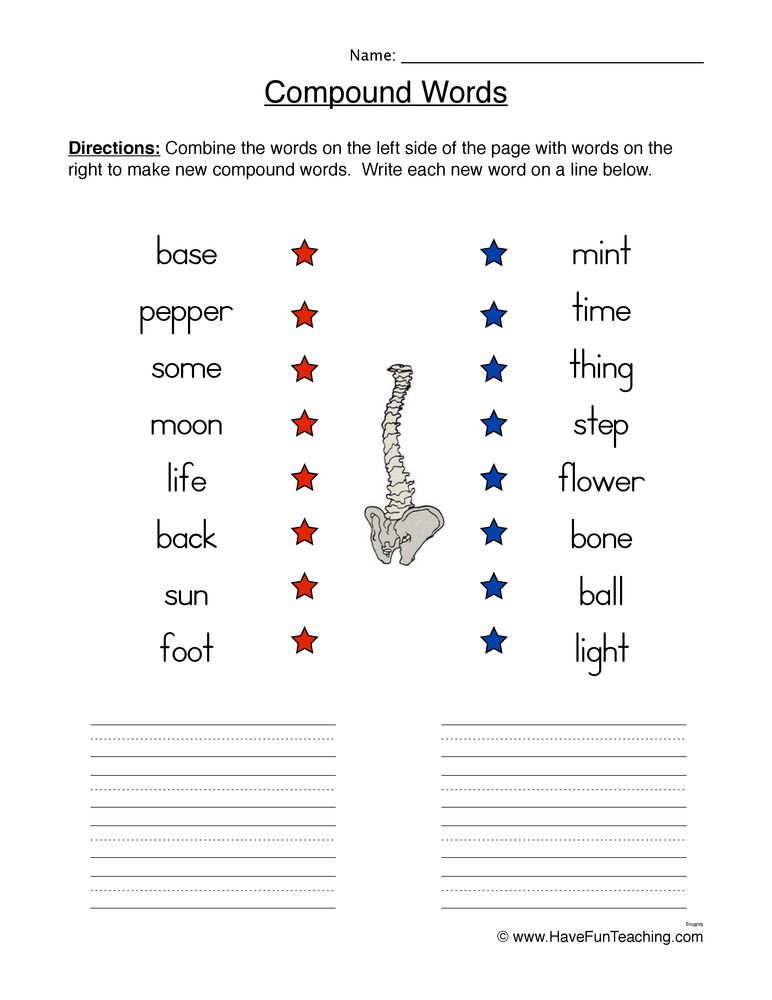
The word כל בו kol bo “department store” consists of two words: בו bo “in it” and כל.
The word קרמבו krembo "crembo (a type of cake)" is from the words קרם krem "cream" and בו.
Compound words that include the word גובה gove “charges”.
The word גוביינא gowayna is perceived approximately as the words “charge me a fee, please” and is translated as “cash on delivery”.
The word נא to is used in combination with verbs and is translated as “please”.
The word גוזיה guziya “T-shirt-bra” is formed from the words “T-shirt” goofia גופיה and “bra” khazia חזיה.
Compound words that include the word
The word דחפור dahpor "bulldozer" consists of two words דחף dahaf "pushed" and לחפור lahpor "dig".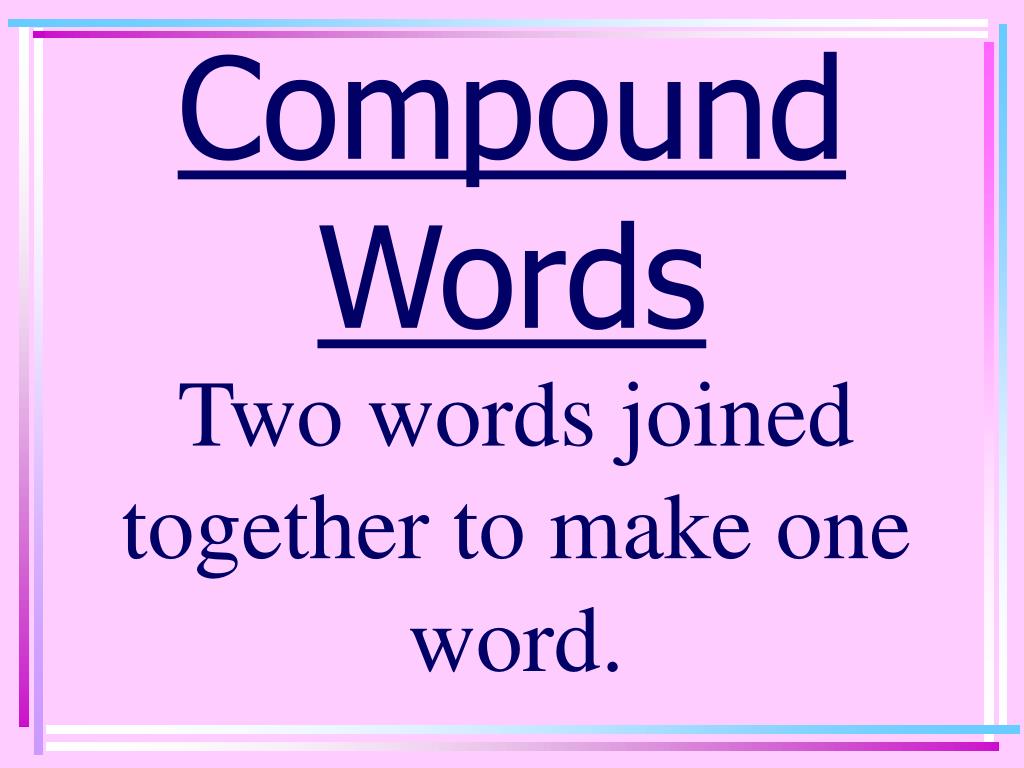
Compound words that include the word זהב for h ab “gold; Golden ”
The word שinder Shen H AB “ Elephant Bone ”is formed from the word שן Shan “ Tooth ”and זהו H H 9000 Gold“ Gold ”.
The word תפוז tapuz "orange" is from the words תפוח tapuach "apple" and זהב for h av "gold".
Compound words that include the word chant; music”
מחזמר mahazemer “musical” — consists of the words מחזה mahazeh “play; drama; phenomenon, spectacle” and זמר.
Compound words that include the root חום hom "heat; high temperature”
The word שמרחום shmarhom “thermos” consists of two words: חום and שמר shamar “guarded”.
חמגשית hamgashit lunchbox; a disposable tray (usually with compartments for side dishes and salads) - for serving hot food in the field or on the road" - from the words חם and מגש magash "tray".
The word מדחום madhom “thermometer, thermometer” consists of the words מד mad and חום hom “high temperature; warm".
מיחם meiham "tank with constant heating of drinking water": מי mei "water" (conjugate form of the word) and חם ham "hot".
חמצוואirl
015
Compound words that include the word lives”
The word חיידק haidak “microbe” is formed from the words חי and דק dak “thin”.
חי—זר ,חייזר hayzar “alien” — from the words חי and זר zar “alien; foreign".
חי—בר - hi-bar "natural reserve" - from the words חי and בר bar "wild; field (in conjugations).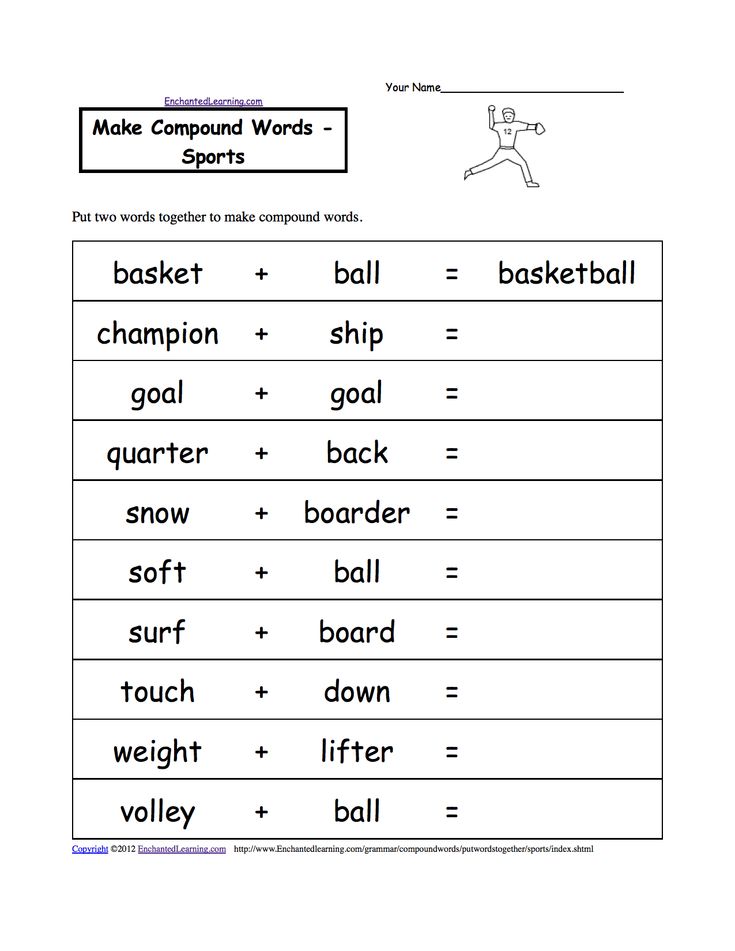
Note that the two letters "Yud" in the above words are desirable for the correct reading of the word. For example, the word חיזר can be read as hayzar or khizer "he courted".
Compound words, which include word סך HASACS “SECELE”
Word0004 "household faucet regulator" is formed from the word חסך and the letter ם, implying the word מים maim "water".
Compound words that include the word arrow"
The word תשחץ tashkhets "scanword" is formed from the word תשבץ tashbets "crossword" and the word חץ.
Compound words that include the word טיפול tipul “care, care; office work; course of treatment”
The word טיטול title “disposable diaper” is formed from the word חיתול hitul “diaper” and the word טיפול.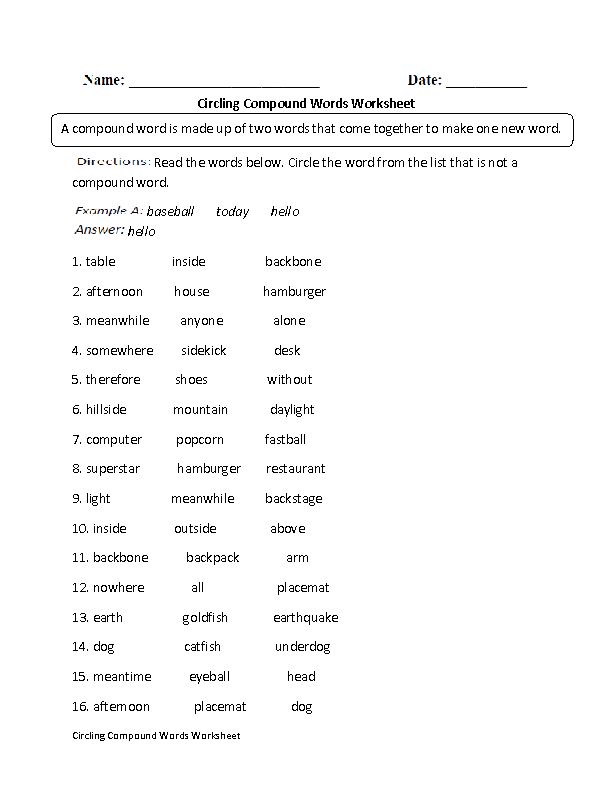
Compound words that include the root0015 עדלאידע adloyada Purim carnival procession. The name comes from the expression β β ° ction בין ארור המן לברוך מרוך מרוךי 1 AD DE-LA YADA
Compound words that include the word יום YOM "Day"
יומולden "Birthday" - from the words יום and h ULEDET "birth".
Compound words, which includes word כβ port “Ball”
soccer ball" - from the words כדור and רגל regel "leg".
כדוריד kaduryad handball; handball" - from the words כדור and יד yad "hand".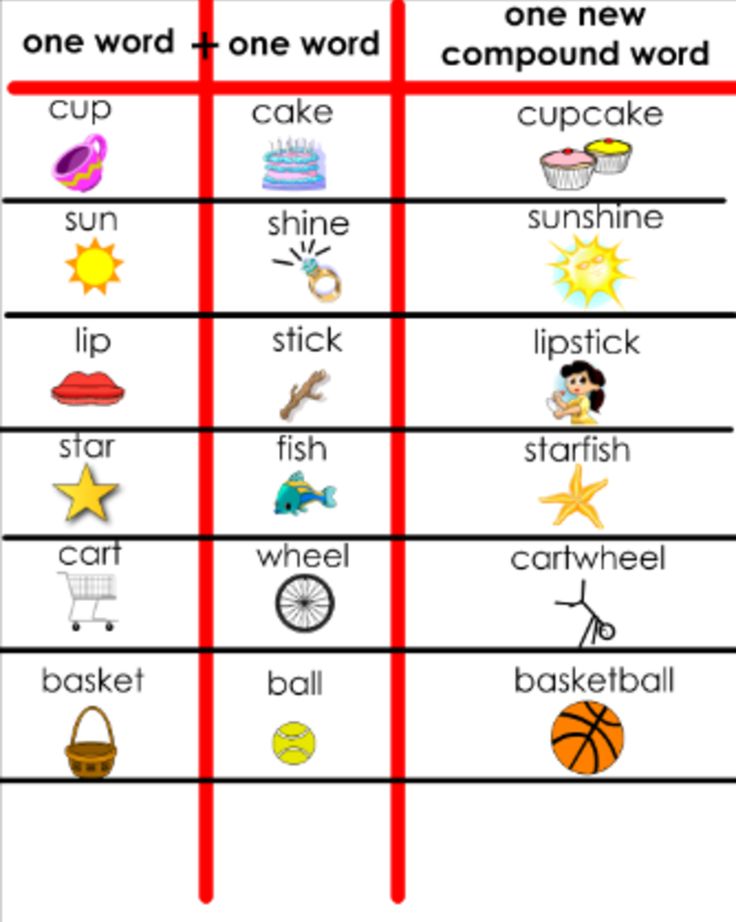
כדורמים kadur mayim “water polo” — from the words כדור and מים mayim “water”.
כדורסל cadursal "basketball; basketball" - from the words כדור and סל sal "basket".
כדורעף kaduraaf “volleyball; volleyball" - from the words כדור and עף af "flies, flies".
The word כל בו kol bo “department store” consists of two words: בו bo “in it” and כל.
Compound words that include the word כסף kesef "money".
The word כספומט kaspomat is the Hebrew word for ATM.
The word כספר kaspar “a bank employee serving clients” is from the words כסף and ספר safar “counted, counted”.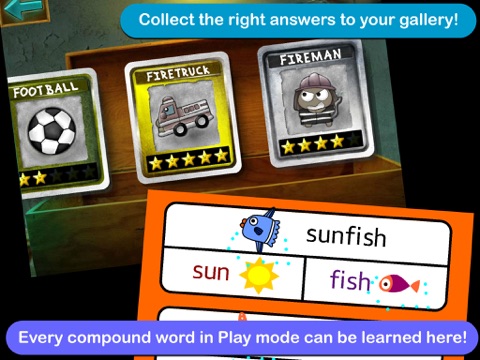
Compound words that include the word להב la h av "flame".
Word
Compound words that include the word
The word ביסלי Bisli Bisli (name of a crunchy flour product) consists of the words ביס (one bite) and לי.
Compound words that include the root מדד madad, meaning "measurement".
. warm".
The word מדחן madhan “time-of-charge parking machine” is formed from two words: מד and חניה hanaya “parking”.
Compound words, which include the root βware , which implies “Movement”
Word
גלנוע galoa "ro-ro (wheelbase cargo ship)" - from the words גלגל galgal "wheel" and נוע.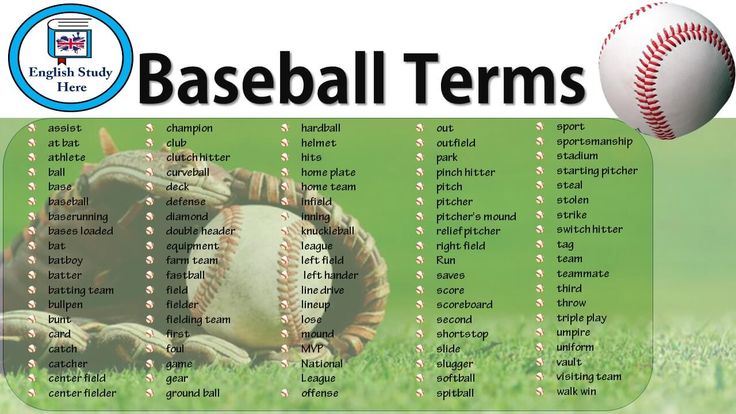
דרגנוע dragnoa "escalator" - דרג dereg "level; rank" and נוע.
מלונוע malonoa "motel" - מלון malon "hotel" and נוע.
קטנוע katnoa "motor scooter" - consists of the words קטן katan "small" and נוע.
קולנוע kolnoa “cinema” — from the words קול kol “sound” and נוע.
קלנוע scooter "scooter" - קל cal "light" and נוע.
קלנועית kaliit "electric cycle (three- or four-wheeled)" - קל kali "light" and נוע.
רכינוע rehinoa "segway" - רכינה rehina "tilt, body lift" and נוע.
קרונוע kronoa motrisa; rail bus” — קרון caron “wagon” and נוע.
Compound words that include root “Travel”
רמסMS “Removable body” - from the words רם MAS “High,“ High, “High” and מס fur "trip, hike.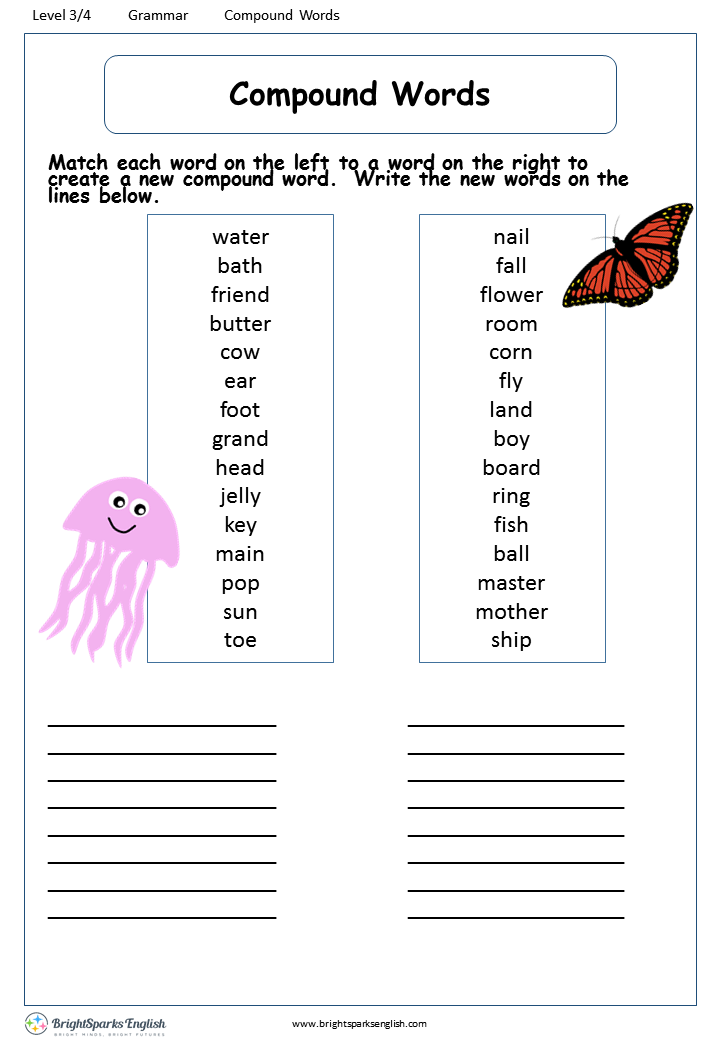 "
"
Compound words, which includes word סל "BASSINA"
כimes cadursal 004
"weekend, days off at the end of the week" - from the words סוף and שבוע shavua "week".
Compound words that include the root סער “storm; Sturm ”
מסת canned Mistaarev “ A dressed soldier acting on the territory of the enemy ” - from the words מסת porn “ Superigns; attacks” and ערבי Aravi "Arab";
רוס woodes Rosar "Automatic rifle" - from the words סער and רובה ROVE "Rifle".
Compound words that include word ronic AD "BC"
Word » consists of the words עד and כאן ch "here, in this place".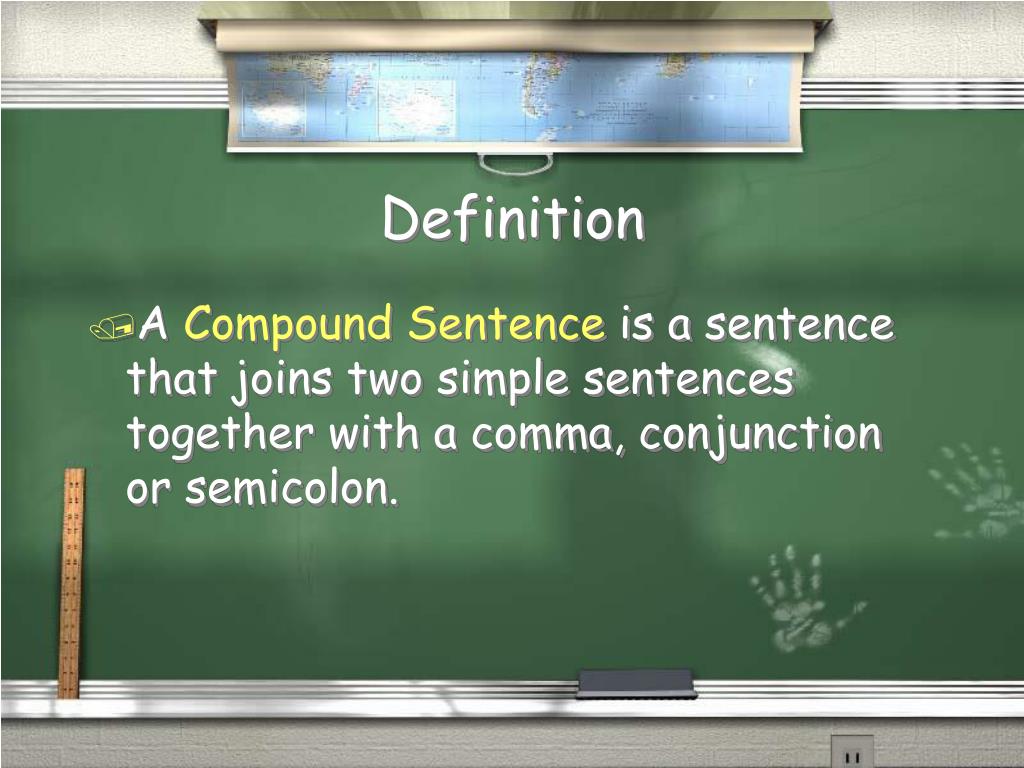 Other words are formed from this word:
Other words are formed from this word:
לעדכן leadcan “update information; clarify";
מעודכן meudkan “received updated information; clarified";
עדכני adkani "fresh, last (about information)".
Compound words that include the word פיח piah
Word ערפיח arpiah "smog" consists of the words פיח and ערפל arafel "fog".
Compound words, which include word צל CEL "Shadow" מוות mavet "death".
Compound words that include the word קול meaning “sound”
The word רמקול ramkol “speaker; column; loudspeaker" is formed from two words: רם ram "high, loud" and קול.
קולנוע kolnoa "cinema" - from the root נוע "movement" and קול.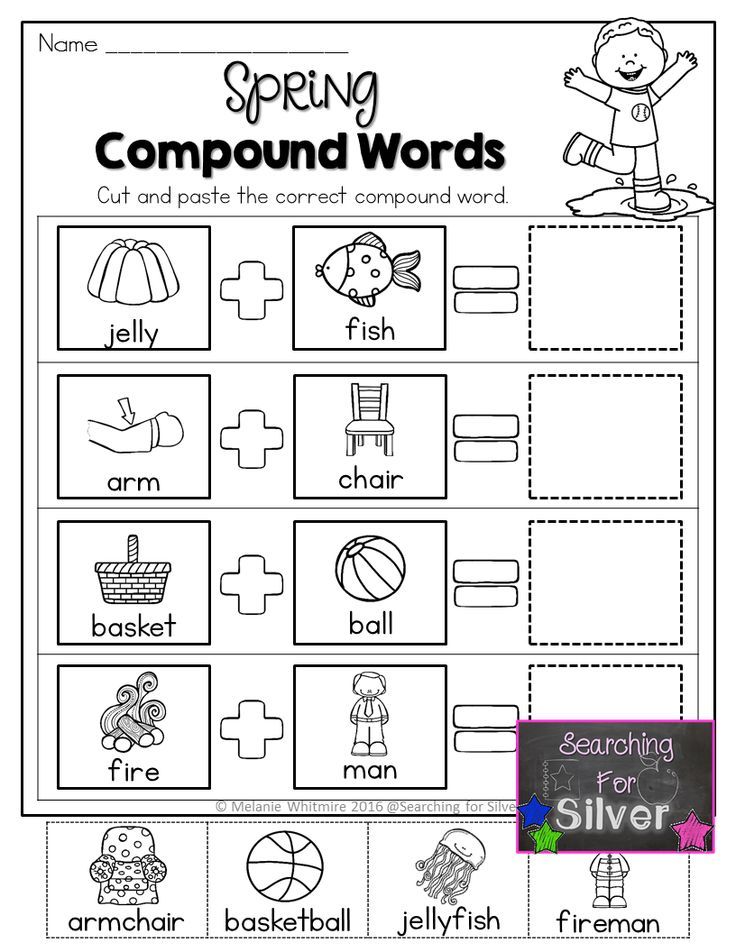
פסקול paskol "soundtrack" - from the words פס pas "line, stripe" and קול.
Compound words that include word טן Katan “Little”
ט cannon “Motoroller” - consists of the words טן 9000 Katan 9000 “Little noah, meaning "movement".
קטרגל katregel "mini-football" - from the words קטן katan "small" and רגל regel "leg".
katana "small".
כדורגל caduregel “football; soccer ball” — from the words כדור kadur “ball” and רגל.
Compound words, which includes the word רחוו RECHOV "Street"
street closed to traffic" - from the words רחוב and מדרכה midrach "sidewalk".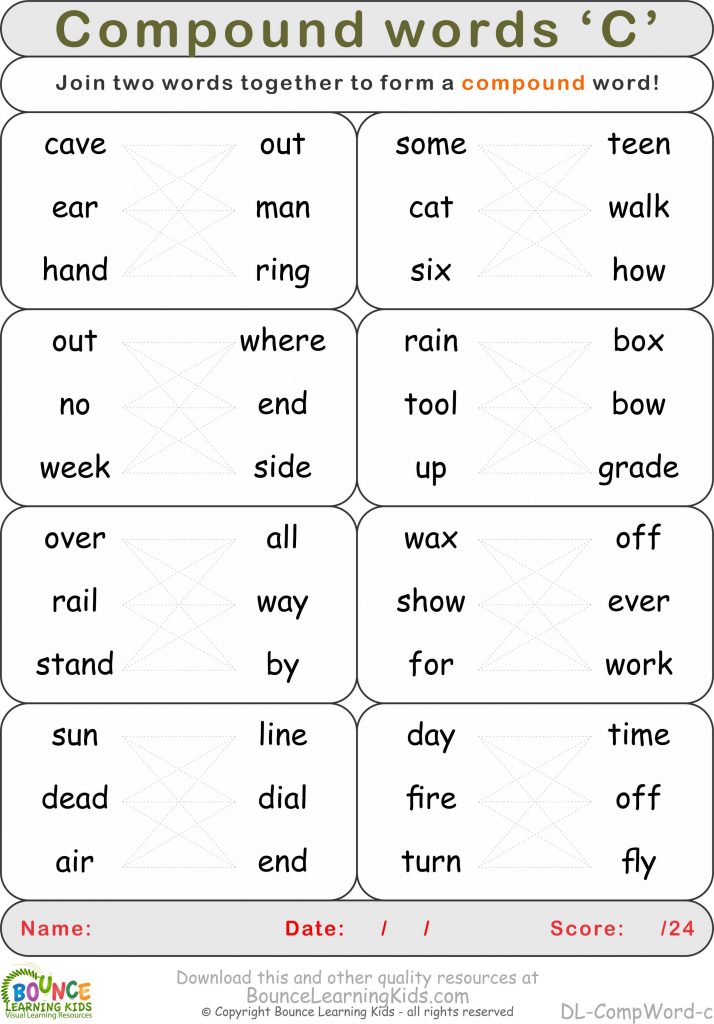
Compound words, which includes the root enerכ , which implies the “vehicle”
Word ´ševel “Figuler, a vehicle with a rope, a vehicle with a rope -based rope, a vehicle with a rope -based rope. "vehicle" and כבל kevel "cable".
Compound words that include the root רכז
The word שמרחום shmarhom “thermos” consists of two words: שמר and חום “high temperature; warm".
שמרטף schmartaf babysitting; babysitter” — from the words שמר and טף taf “kids; Small children".
Compound words, which includes the word שן Shen "Tooth"
Word0003 shinabuw "aardvark" is formed from the word שן and אבוב abuv "pipe".


